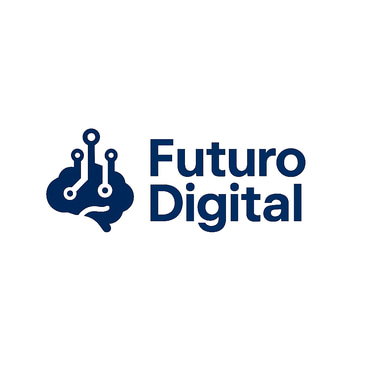Transforming Trust: The Power of Integrating Artificial Intelligence and Blockchain
Artificial intelligence and blockchain combine security, transparency, and intelligent automation—turning data into trustworthy decisions and driving global innovation in bold new directions.
9/17/20253 min read


We are living in an era defined by two simultaneous technological revolutions. On one hand, Artificial Intelligence (AI) and Large Language Models (LLMs) are automating cognition, enabling machines that "think," create, and decide. On the other, Blockchain has redefined the concept of digital trust, creating immutable and decentralized records.
For years, these technologies evolved in separate silos. However, the true disruption lies in their convergence. Together, they solve each other's fundamental problems: Blockchain brings transparency and verifiability to AI's "black box," while AI brings intelligence and scalability to Blockchain's static records. This guide explores how this fusion is building the infrastructure of Web3 and the future digital economy.
The Trust Paradox: Why AI Needs Blockchain
AI is currently facing a trust crisis. As algorithms make critical decisions—from credit approvals to medical diagnoses—the question arises: "How can we trust the machine's decision?" and "Where did the data come from?".
This is where Blockchain acts as a "truth layer." By recording training data, model parameters, and decision logs on an immutable ledger (Distributed Ledger Technology), we create a tamper-proof audit trail.
Data Provenance: Blockchain ensures that the data used to train AI is authentic and hasn't been manipulated, combating the "Garbage In, Garbage Out" problem.
Explainable AI (XAI): On-chain decision logging allows human auditors to verify the algorithm's "reasoning," which is essential for regulatory compliance (such as GDPR).
Decentralized Data Economy and Privacy
Tech giants (Big Tech) currently hold a monopoly on data. The AI-Blockchain convergence promises to democratize this access through Decentralized Data Marketplaces.
Imagine a scenario where individual users can sell their health data or shopping behavior to AI companies, receiving tokens as direct payment, without intermediaries. Technologies like Zero-Knowledge Proofs (ZKPs) allow AI to learn from this encrypted data without ever seeing the raw personal information. This solves the dilemma between personalization and privacy, enabling the training of robust models without compromising user secrecy.
Cognitive Smart Contracts
Traditional Smart Contracts are rigid: "If X happens, execute Y." They cannot interpret nuance. AI integration creates "Cognitive Smart Contracts."
Through AI Oracles, a smart contract can receive real-world data processed by Machine Learning.
Insurance Example: An agricultural insurance contract could be triggered automatically not just if "it doesn't rain," but if an AI model analyzes satellite imagery and confirms that crops were destroyed by drought, releasing the payout instantly.
Supply Chain Revolution
The global supply chain is complex and opaque. Combining these technologies creates unprecedented visibility. IoT sensors feed AI models that predict demand and detect anomalies in transport temperature (crucial for vaccines or food). Blockchain records every step, from raw material to the end consumer. This not only optimizes logistics, reducing waste, but also guarantees product authenticity, eliminating the counterfeit market in luxury goods and pharmaceuticals.
Technical Challenges and Barriers to Adoption
Despite the potential, implementation is not trivial. The main challenge is Scalability. Public Blockchains have throughput limitations (transactions per second), while AI requires massive data processing. "Layer 2" solutions and off-chain computing are essential. In this model, AI processes data externally, and only the cryptographic "summary" (hash) of the result is recorded on the Blockchain, balancing efficiency and security. Additionally, the energy consumption of both technologies demands a transition to greener consensus algorithms (Proof-of-Stake) and efficient hardware.
The Future: Decentralized Autonomous Agents
The final horizon of this convergence is Decentralized Autonomous Agents (AI-managed DAOs). Imagine investment funds managed entirely by AI, whose operating rules are auditable on the Blockchain and whose profits are automatically distributed to token holders. While it sounds like science fiction, the building blocks for this automated economy are being coded today.
The Sustainability Dilemma: Are AI and Blockchain Green?
No discussion on modern technology is complete without addressing environmental impact (ESG). Historically, both training large AI models and cryptocurrency mining (Proof-of-Work) have been criticized for excessive energy consumption. However, convergence offers solutions to this problem. The industry is migrating to Proof-of-Stake (PoS) consensus mechanisms, which reduce Blockchain energy consumption by 99.9%. Simultaneously, AI is being used to optimize Data Center efficiency, slashing cooling costs. Even more interesting is the rise of ReFi (Regenerative Finance): projects where AI monitors reforestation via satellite imagery and Blockchain automatically issues verified carbon credits, creating a digital economy that benefits the planet.
Practical Implementation Roadmap (From Zero to Hero)
For managers looking to move beyond theory, the integration path must be gradual:
Discovery Phase: Don't try to apply Blockchain to everything. Identify processes where lack of trust between parties is a cost (e.g., invoice reconciliation).
Data Digitization: Before applying AI, ensure your data is clean and structured. AI cannot learn from "noise."
The "Digital Twin": Create a digital twin of your process on a private or hybrid Blockchain to test immutability without exposing sensitive data to the public.
Cognitive Automation: Introduce AI to read this data and suggest actions, but keep a Human-in-the-loop during the initial phase to validate the decisions recorded on-chain.
Conclusion
The fusion of Artificial Intelligence and Blockchain is not just a passing trend; it is the structural foundation for a fairer and more efficient digital society. For companies and investors, understanding this symbiosis is crucial. Those who can navigate the intersection between data intelligence and decentralized security will lead the next decade of technological innovation.
Innovation
Discover how AI transforms everyday life
Technology
Blog
suportevirtual@futurodigital.blog
© 2025. All rights reserved.
Other Pages
